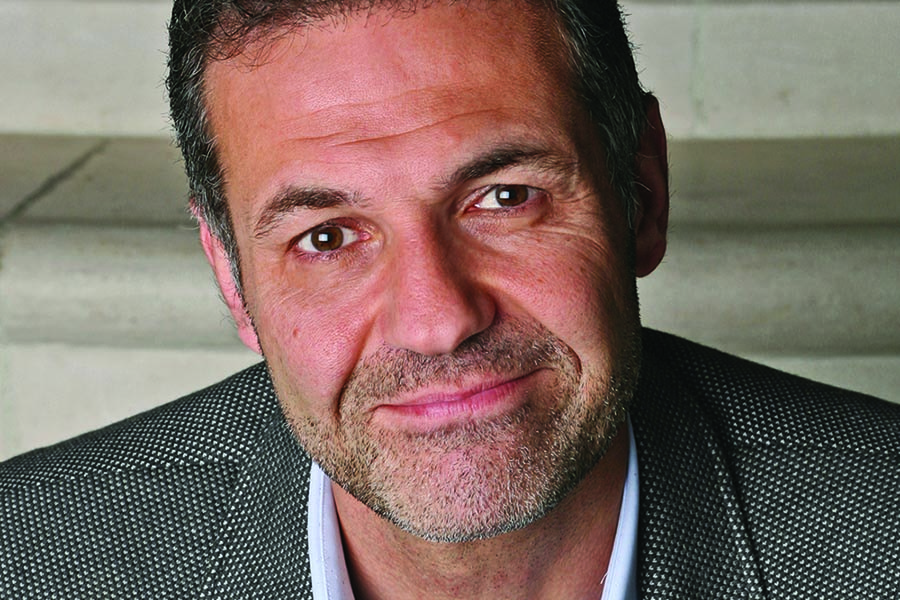Khaled Hosseini’s first novel, The Kite Runner, was staged in 2009 at California’s San Jose Repertory Theatre, and his subsequent book, A Thousand Splendid Suns, comes to the stage of San Francisco’s American Conservatory Theater Feb. 1-26, in an adaptation by Ursula Rani Sarma.
You’ve now had two books adapted for the stage in the Bay Area. Do you think of yourself as a theatre person?
I really like theatre, but I wouldn’t say that I’m really in touch with the community. My admiration for theatre is purely as a fan.
How have Ursula Rani Sarma and director Carey Perloff adapted A Thousand Splendid Suns?
They’ve approached the material with a sense that the heart of this play is a story of an evolving friendship. It’s really a love story between these two Afghan women—not a romantic love, but like a mother and daughter. When we first met, Carey said that the heart of the play has to be the standing of these two women in solidarity—these two women finding each other, complementing each other, fulfilling each other’s hopes and destinies, and so on. That really spoke to me, because it’s exactly what I thought. At the end of it—despite the political realities around the story, the world events that unfold around the characters—I always intended this book first and foremost as the story of this love sparked between these two very different individuals.
You mentioned the political realities in the story, which feel even more topical today.
One of the real virtues of any kind of art form is the ability to connect people who are different. If there’s one thing we really could use in this current climate, it’s to not see so much the walls and barriers between ourselves but to see the things that bind us. No matter what god we pray to or whether we go to a church or a temple or a mosque or whatever, there are things that we all share as human beings, and stories have a way of reminding us of those easily forgotten facts.
There also aren’t a lot of stories from Afghanistan onstage. Do you think it’s important that we get to see more of these stories?
The more diverse the artistic menu that we have to choose from, the richer we all are for it. If there’s representation from voices from all over the world and different perspectives from us, and we can abandon our immediate reality and live for a little while what it might be like to be a woman in Kabul or a refugee from Sudan or something, I can’t help but think that that’s a good and positive thing. If you can connect with another individual on common human grounds—love of family, love of mother, love of child, friendship, the importance of wanting a home, wanting a life that means something, feeling like you’re a person who has worth, value, and dignity—these are all universal feelings and universal experiences. So that’s what I think in a small way this play can do.
Have you ever considered writing a play?
I struggle enough doing the thing that I’m supposed to be doing, let alone trying on something new. I have enough humility to appreciate that writing plays is an entirely different art form and not something that I would just approach flippantly. It’s difficult enough to write books. I can only imagine that writing a play would be even more difficult for me. I can hit the ground running if I’m writing a book. I can get into a groove and get going. I’m not saying it’s easy. A lot of times what comes out is not very good. But at least I know where to start. But writing a play, I wouldn’t know how to begin.
Do you remember the last show you saw?
It might have been Of Mice and Men on Broadway. I went with my kids. My son had read the book. My daughter was still a little young; she was a little shaken, but they loved it.
Who are some of your favorite writers right now?
I’ll give you three: Ian McEwan, Alice Munro, and Dave Eggers. I’ve read everything Alice Munro’s written. She’s one of my favorite writers of all time. I really enjoyed Nutshell, which is the last book by Ian McEwan. And I’ve just opened Heroes of the Frontier, the new Dave Eggers book. I’m intensely jealous of how well he can write and how many books he writes!
What was your first paying job?
I was a janitor. I was 15. My brother and I worked for this guy who had his own small business, and we went around with him and cleaned homes and schools after they had closed down. That was back in the early ’80s. But my first real job, which I got a paycheck for, was at an amusement park [in the Bay Area] called Great America. That was my first real job. I sold cookies and fried chicken.


